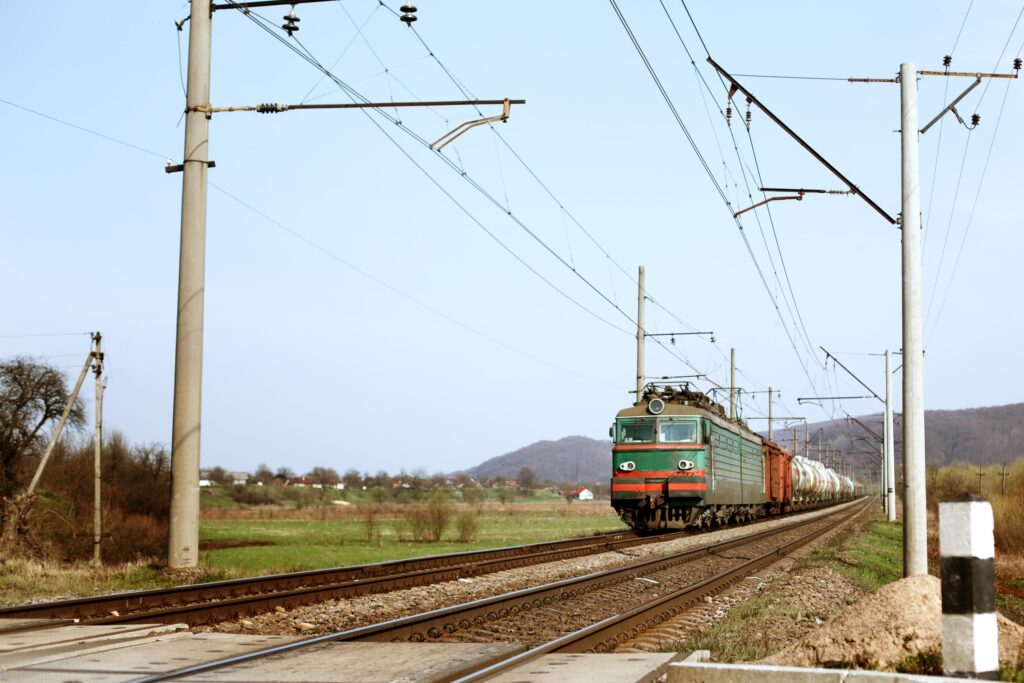Heavy Hauling: Strategies for Safe and Successful Transportation
Heavy hauling plays a crucial role in the logistics industry, ensuring the transportation of oversized and overweight cargo to various destinations. From construction machinery to

In today’s global economy, efficient freight logistics plays a crucial role in ensuring the smooth movement of goods and materials. As businesses strive for cost-effective and sustainable solutions, rail transport has emerged as a reliable and advantageous option. In this blog post, we will explore the benefits of rail transport for freight logistics and shed light on how PM Logistics Services leverages rail transportation to provide end-to-end logistics solutions.
Rail transport is a mode of transportation that utilizes dedicated tracks and locomotives to transport goods and materials. Its significance in the freight logistics industry cannot be overstated. Here are some key advantages of rail transport:
When considering rail transport for your freight logistics needs, several factors should be taken into account:
1) Suitability of rail transport for different types of cargo:
2) Geographic coverage and accessibility:
Rail networks have extensive coverage across regions and countries, ensuring accessibility to various destinations and major industrial hubs. This makes rail transport an attractive option for businesses with widespread distribution needs.
3) Intermodal capabilities and integration: Rail transport’s integration with other modes of transport, such as trucking and maritime shipping, facilitates a comprehensive logistics solution. By combining different modes, businesses can optimize their supply chains and achieve seamless transportation from origin to destination.
4) Time considerations and transit schedules:
Understanding transit times and rail schedules is crucial for effective supply chain management. Rail transport typically operates on fixed schedules, which allows for better planning and coordination of shipments. It is essential to align transit times with business requirements to ensure timely delivery.
5) Safety and security measures in rail logistics:
Rail logistics prioritize safety and security. Specialized railcars, equipment, and procedures are in place to handle different types of cargo, including hazardous materials. Regulatory compliance and security protocols are strictly followed to safeguard the integrity of the supply chain.
Let’s explore a few real-world examples that demonstrate the success of rail transport in freight logistics:
When it comes to leveraging the advantages of rail transport for freight logistics, PM Logistics Services stands out as a reliable and trusted partner. Here’s why you should choose PM Logistics Services for your rail logistics needs:
Rail transport offers significant advantages for freight logistics, including cost-effectiveness, scalability, reduced environmental impact, and long-haul capabilities. As businesses strive for efficient and sustainable supply chain solutions, rail transport emerges as a reliable and advantageous option. PM Logistics Services, with its investments in technology, collaborative approach, and commitment to customer satisfaction, stands as a trusted partner to unlock the potential of rail transport for your freight logistics needs. Discover the benefits of rail transport and elevate your logistics operations with PM Logistics Services.
Rail transport is suitable for businesses of all sizes. While it is commonly associated with bulk shipments, rail transport can be integrated with other modes to cater to various cargo sizes and requirements. PM Logistics Services can assist small businesses in optimizing their logistics strategies and finding the most suitable solutions.
Rail transport significantly reduces the carbon footprint compared to other modes of transport. It produces fewer emissions per ton-mile, reduces traffic congestion, and contributes to a more sustainable supply chain. By choosing rail transport, businesses can align their logistics operations with their sustainability goals.
Rail transport typically operates on fixed schedules, allowing for better planning and coordination. While it may not be as fast as air transport, rail logistics providers like PM Logistics Services can work with businesses to optimize transit times and meet time-sensitive delivery requirements. By understanding specific business needs, PM Logistics Services can design efficient logistics solutions.
Several factors should be considered, such as the type of cargo, volume, geographic coverage, intermodal capabilities, and transit times. Consulting with a reputable logistics provider like PM Logistics Services can help assess your requirements and determine if rail transport aligns with your specific logistics needs.
Rail logistics adhere to strict safety regulations and security protocols when transporting hazardous materials. Specialized railcars, trained personnel, and compliance with regulatory requirements ensure the safe transportation of such cargo. PM Logistics Services is well-versed in handling hazardous materials and ensures all safety standards are met.
By exploring rail transport for your freight logistics needs and partnering with a trusted provider like PM Logistics Services, businesses can unlock the benefits of cost-effectiveness, scalability, reduced environmental impact, and long-haul capabilities. Embracing rail transport as a reliable solution not only enhances supply chain efficiency but also contributes to a more sustainable and resilient logistics ecosystem. Choose PM Logistics Services as your rail logistics partner and experience seamless end-to-end logistics solutions tailored to your unique requirements.
Heavy hauling plays a crucial role in the logistics industry, ensuring the transportation of oversized and overweight cargo to various destinations. From construction machinery to
Freight shipping plays a critical role in supply chain management. It ensures the timely and efficient movement of goods from one location to another. However,
In today’s global economy, efficient freight logistics plays a crucial role in ensuring the smooth movement of goods and materials. As businesses strive for cost-effective
In today’s fast-paced world, efficient shipping is crucial for businesses to thrive. PM Logistics Services understands the importance of streamlined transportation solutions, and one such
Welcome to PM Logistics Services’ comprehensive guide to drayage services in Charleston and Greer, SC. In this article, we will delve into the significance of
In today’s fast-paced business environment, having visibility into the supply chain from producer to consumer is essential. This allows for maximum efficiency and reduces the